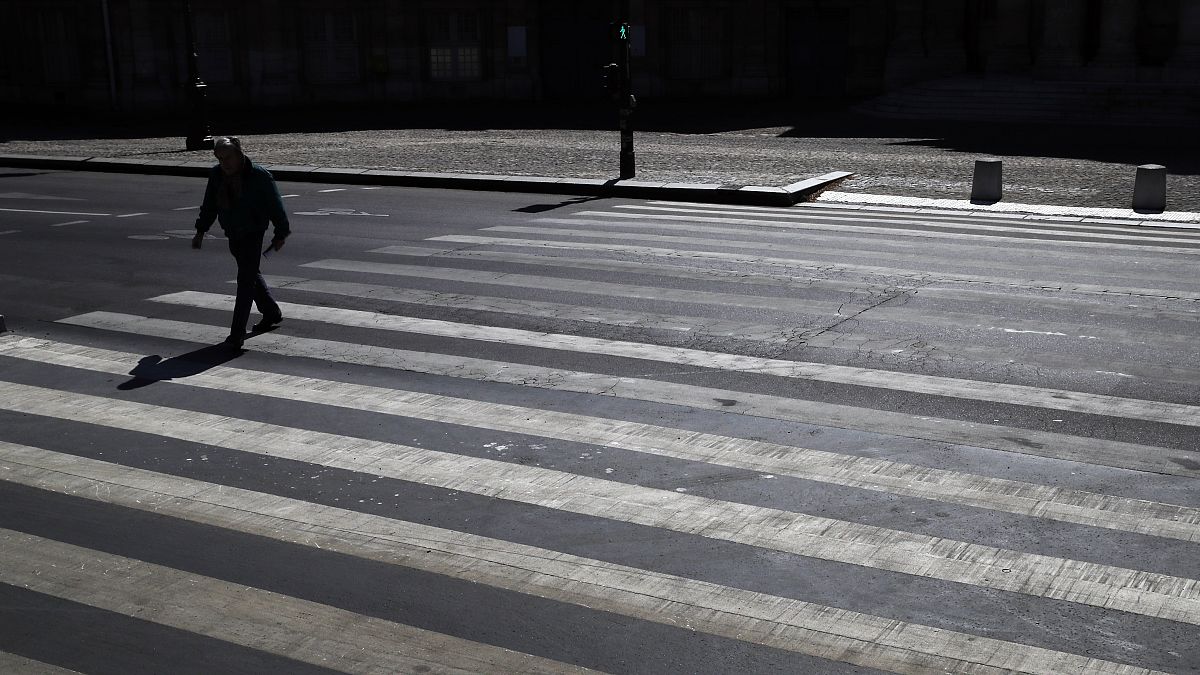More and more Europeans reported feeling lonely during the COVID-19 lockdown. But loneliness isn't a new problem in Europe. Here's what you need to know: #SmartRegions
During the COVID-19 lockdown over the last few months, a higher than normal number of Europeans, especially young ones, reported feeling overwhelmingly lonely.
A McKinsey report published in June 2020 said that, across Europe, the proportion of people claiming that they felt lonely “most or all of the time” almost tripled.
However, while the pandemic has exacerbated these feelings among Europeans, loneliness is certainly not a new problem on the continent.
Data from the European Commission in 2018 shows that 30 million European adults reported frequently feeling lonely. That is 7% of Europe's population.
With the issue being discussed widely within the context of the coronavirus pandemic, here are a few facts you you ought to know:
1. Loneliness is not the same as being alone
“Sometimes we can be alone, but be very happy and not lonely," says Julie Barnett, professor of Health Psychology at the University of Bath, in an interview with Euronews.
“Loneliness is a feeling. It’s not the same thing as social isolation. Other times we can be lonely with people around us.
"It’s a different thing from being on your own. Essentially it’s more of your evaluation of your social network.”
75 million people in Europe meet with friends or family once a month at most, according to the European Commission. That doesn't mean they are lonely, however. It could be that they are content being on their own.
2. Loneliness is bad for your health
Loneliness can be as bad as smoking 15 cigarettes a day, according to several studies.
Professor of psychology and neuroscience at Brigham Young University (US), Julianne Holt-Lunstad highlights a link between smoking and a lack of social connection, which can actually heighten health risks.
In her research, she also illustrates how loneliness and social isolation are twice as harmful to physical and mental health as obesity.
This is one of the central arguments for national campaigns such as the British Campaign to End Loneliness.
Loneliness is linked to "not just physical but also mental health problems," says Barnett.
"It’s not just linked. It can cause those problems."
She explains how feelings of loneliness can often lead to even more loneliness: "it’s a synergistic relationship by which we mean it has a role in causing those things, and those things can then have an impact on further accentuating or amplifying loneliness."
3. Loneliness is not the same across Europe
According to the European Commission, loneliness is more prevalent in Eastern and Southern Europe than it is in the West and North.
As many as 1 in 10 people frequently feel lonely in Italy, Poland, Hungary, France and Greece.
In Hungary, that number can go up to 40%.
4. Old people aren't as lonely as you think
"One thing that we often think is that older people are more lonely," Barnett says.
"In fact, almost everywhere, the evidence we see now is that that’s actually not the case."
While the elderly tend to be more socially isolated than other age groups, they report less loneliness than younger people.
A survey from the American Association of Retired Persons (AARP) observed that loneliness "decreased significantly" with age.
Among people aged 70 and above, 25% of respondents said they were lonely, compared to 43% for those aged between 46 and 49 years old.
Barnett says that, almost invariably, it’s more younger respondents, aged 18-24, who report feeling lonely.
5. Technology might help reduce loneliness
This year, 7 out of 10 people with internet access in the UK, made at least one video call a week, according to Ofcom.
This includes a growing number of older people.
"Social media often gets bad press in terms of accentuating withdrawal from friendships, a lack of meaning to friendship and so on, " Barnett notes.
"It’s really important to think that lots of people are not internet users," she stresses.
"So the challenge really is how can we build digital platforms that link to positive uses in our social behaviours rather than something that's going to actually increase loneliness."
6. We don’t know much about the impact of COVID-19 on loneliness… yet
In March, the World Health Organization said "levels of loneliness, depression, harmful alcohol and drug use, and self-harm or suicidal behaviour" are expected to have risen due to a disruption to daily life.
It issued a series of recommendations for citizens on how to cope with mental health during the pandemic.
Barnett says that, "in addition to the people that are generally lonely, and have remained so, we also see that there are some people that were previously chronically lonely but during the pandemic have not been so."
"For example in the UK there’s been a huge amount of initiatives by local authorities, community groups, scholarship organisations and so on that have been really active.
"And it may be that the sort of contacts that people have had with them have actually helped that extra help, extra connection that they’ve had."
